National Monitoring Conference in Cincinnati, Ohio
Alexandra Fries · | Science Communication |On April 29, I traveled to Cincinnati, Ohio for the National Water Quality Monitoring Conference. This year’s theme for the conference was Working Together for Clean Water, a true issue IAN tackles in almost all of our projects.
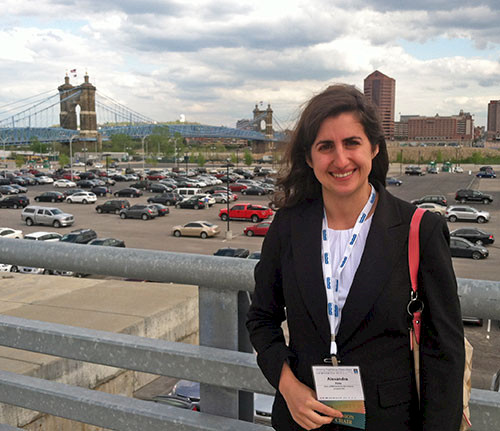
After meeting with Julie Vastine from Dickenson College, she asked me to attend the Volunteer Monitoring Gathering and Dinner. During the volunteer monitoring working group we talked about how volunteer monitoring data can be used, as well as how to retain good volunteers, and gain new ones. One great way to use volunteer monitoring data is by synthesizing the data into environmental health report cards, something we at IAN do often! There is an entire website on volunteer monitoring around the country where citizen scientists can find out about programs near them.
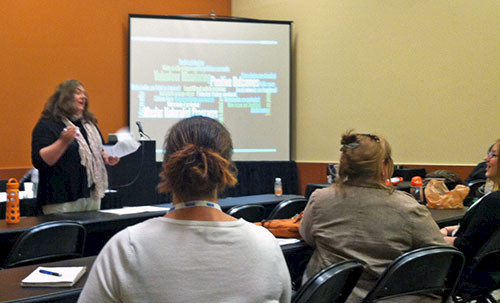
The session I moderated was called Making it Clear for the Public: Techniques in Data Visualization. This was a two-part session in which I moderated part one and gave a talk in part two. My talk focused on report cards, specifically the Mississippi River Report Card (America’s Watershed Initiative) and the Rookery Bay Report Card as examples of calculating water quality scores. My talk was entitled: Calculating Water Quality Indicator Scores for Ecosystem Health Report Cards. There was a lot of interest about how the report card process occurs and the outreach and stakeholder engagement involved.
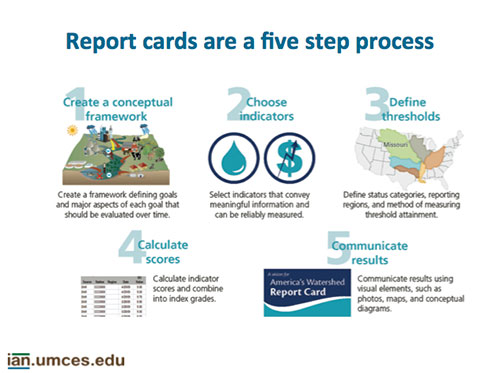
The closing plenary talk was by Robert Glennon, a professor of Law and Public Policy in the Rogers College of Law at the University of Arizona. He summarized issues in his current book, 'Unquenchable: America’s Water Crisis and What To Do About It'. His talk was fascinating since we generally think more about the quality of the water, or water pollution issues, and think less about the volume of water we use, and not having enough of it. Robert was even on The Daily Show with Jon Stewart, you can check out his book and the video on his website.

Luckily I did have a little bit of time to get outside see Cincinnati, Ohio. I also saw the Ohio River, one of the rivers incorporated in the Mississippi River Report Card.
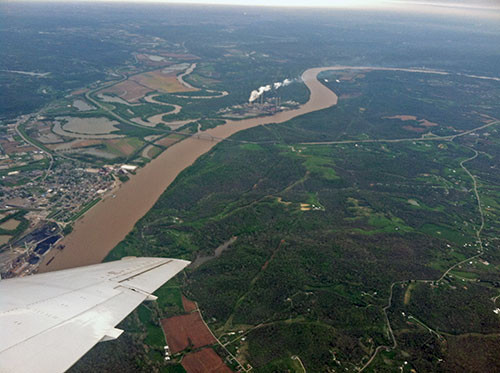
About the author
Alexandra Fries
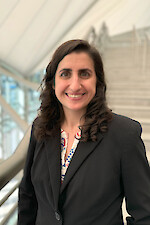
Alexandra is a Program Manager at the Integration and Application Network (IAN) based at the University of Maryland Center for Environmental Science in Annapolis MD. Alexandra’s work in environmental management has been focused on assessment, monitoring, and management of aquatic, marine, and terrestrial ecosystems. Alexandra has extensive experience in data analysis, synthesis, mapping, interpretation, and communication. Alexandra has experience working with a diverse group of partners including those in local, state, and federal government, non-governmental organizations, non-profit organizations, private industry, and academia. Within IAN, Alexandra conducts data analysis, synthesis, and communication by completing environmental report cards, updating the IAN website, and conducting science communication courses. Alexandra also creates science communication materials such as diagrams, posters, presentations, newsletters, and reports using Adobe Creative Suite, Microsoft Office Suite, and ArcGIS. Alexandra has experience managing projects and staff on local and international projects, liaising directly with partners and colleagues, and providing insights on project direction and goals.